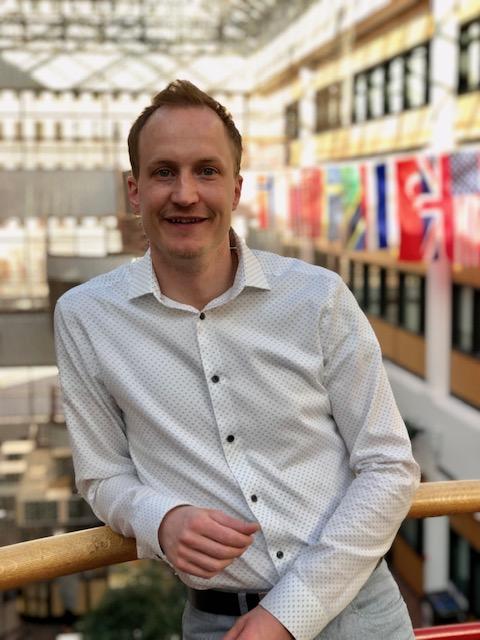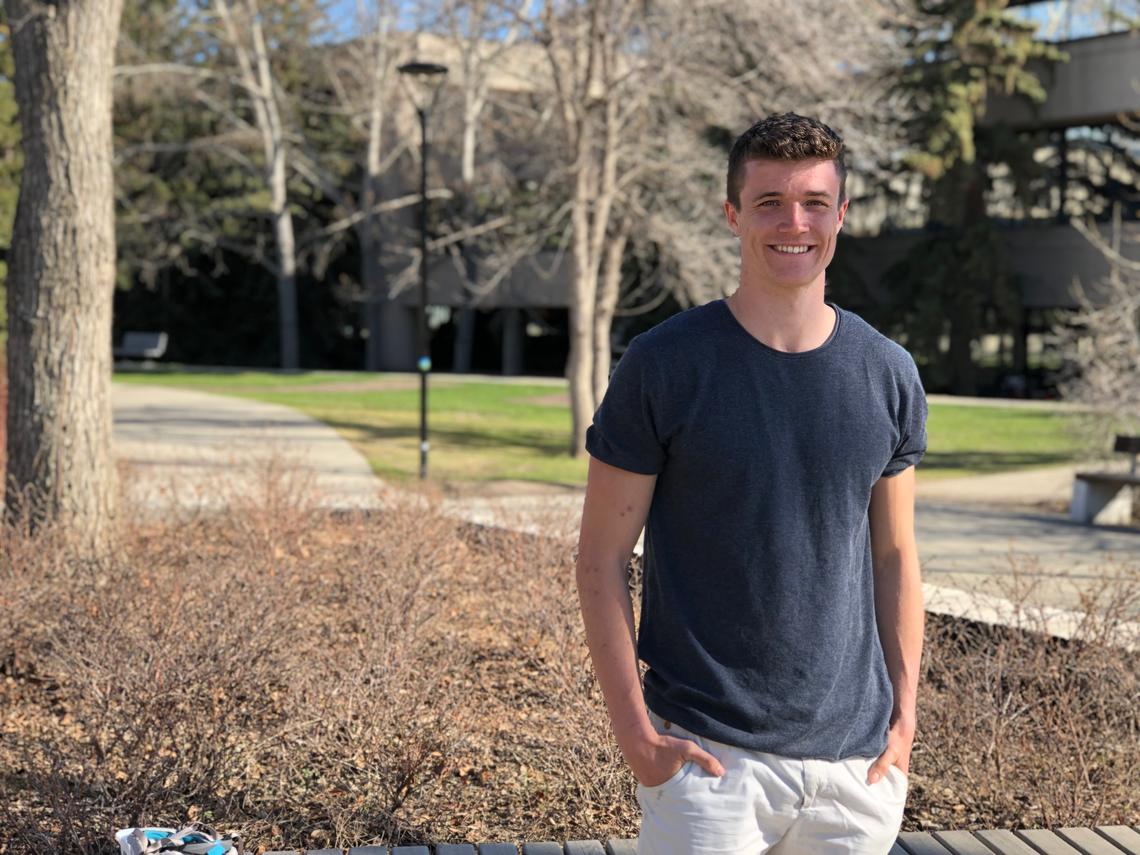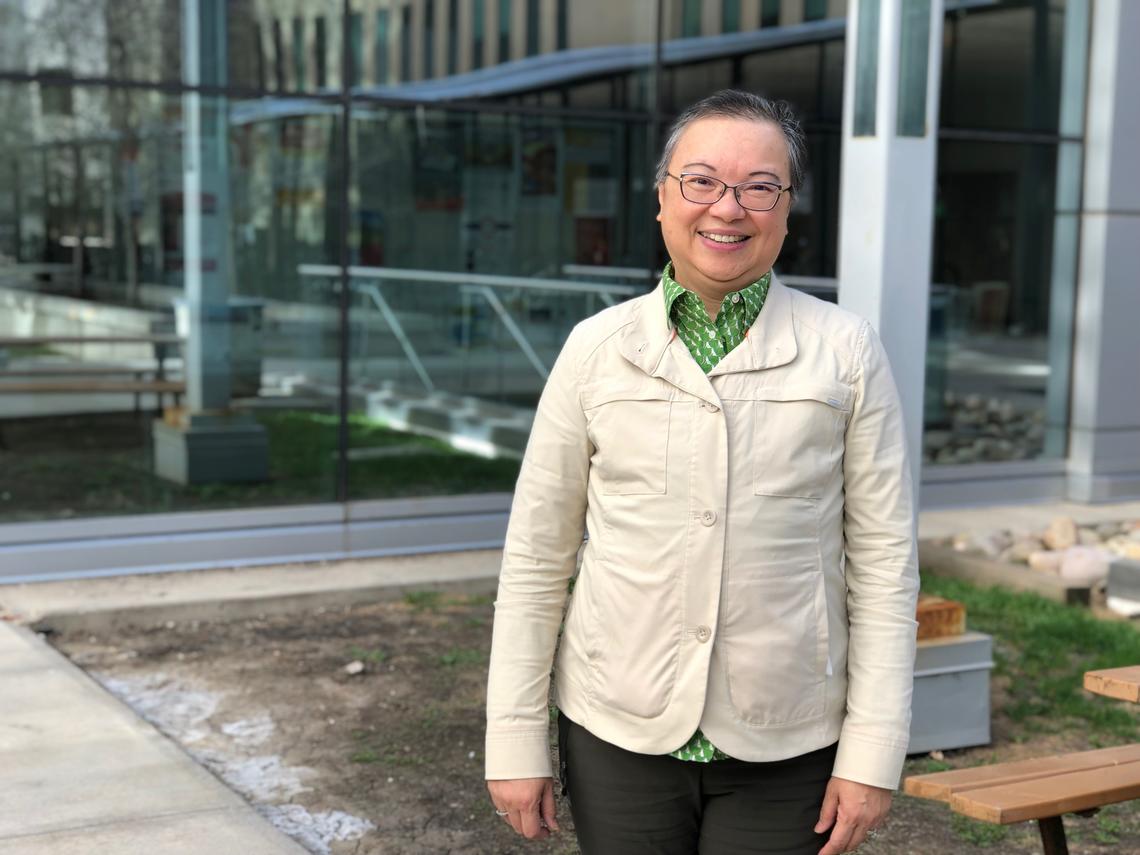April 25, 2019
Experiential learning: Two students and an instructor share their stories

“I learned to work on being introspective so that I can help others," says student Justin Knibbe.
Development and Alumni Engagement
Slow down, lead up
Justin Knibbe is an MBA student. He’s also president of the Haskayne MBA Society, a small-business owner and a father of two preschool-aged kids. Not surprisingly, signing on for a coveted spot in the Haskayne Wilderness Retreat last summer was a fairly uncomfortable stretch for him.
For six days, Knibbe, BComm’17, camped alongside two dozen other students in the woods near Barrier Lake in Kananaskis, learning to lead and follow via outdoor-adventure and team-building activities. They were without phones or computers and, at one point in the week, each was left alone for 24 hours with nothing but a tarp, a rope and a bottle of water.
Knibbe assumed the retreat would hone his motivational and organizational skills. He was keen for the experience, but admits he went in with a lot of stress.
“I felt myself falling into my old habits right away, approaching some of the activities with anger when things didn’t go as I wanted,” Knibbe says. In undertaking physical tasks requiring co-ordinated team work, he says, “I heard my voice get louder and felt myself wanting to direct and micro-manage others.”
As is the ideal upshot of any profound learning experience, however, Knibbe came out of the course transformed. Through daily journaling and gentle coaxing from facilitators to share his values and anxieties with his cohort, Knibbe dramatically shifted his understanding of what makes an exceptional leader.
“I learned the value of slowing down,” he says. “I learned to work on being introspective so that I can help others, rather than defensive and reactive to everything that comes my way.”
Nearly a year later, Knibbe abides by his reimagined definition of what makes for true, effective leadership. “It starts within myself. It starts with me being mentally healthy so I can help others do their best, too,” he says.
These days, when his responsibilities threaten to overwhelm him, Knibbe embraces his take on an Indigenous teaching offered at the retreat: “If something isn’t settled within you, go sit on the land.”
To Knibbe, sometimes great leadership looks like a two-hour walk on Nose Hill. “Being there for others starts with being present,” he says.

Max Eisele credits a five-year scholarship and other programs for enriching his campus experience.
Development and Alumni Engagement
All-star education
Despite his easy smile and a preternaturally relaxed way of moving through the world, star athlete Max Eisele is as fiercely ambitious off the basketball court as he is on. Eisele moved to Canada three years ago from Ulm, Germany, to study exercise physiology in the Faculty of Kinesiology. He's on a five-year basketball scholarship, the Hellard Men’s Basketball Award, and also received a UCalgary Award for International Students.
To most mortals, that’s a full plate. For Eisele, it’s just a starting point.
With plans to begin grad school here in a year or so, followed by medical school, Eisele is involved in as many extracurricular opportunities as can fit into a day. “I’m networking, co-ordinating and collaborating with all kinds of people, both adults and kids,” he says.
He’s deeply grateful for the scholarship that — rather than work part-time and throughout the summer — allows him to devote his time to running basketball camps for children, as well as co-run his own early morning camps for teens.
As well, Eisele has regularly participated in the Dinos LEAD program, engaging with other athletes to work together on leadership skills. He’s also increasingly involved in ACE (Alberta Cancer Exercise), a study that took him on as a practicum student, developing home-exercise programs for individuals with cancer. He’ll continue the work with Dr. Nicole Culos-Reed, PhD, this summer, doing field research and helping participants stay active as they recover from chemotherapy and other treatments.
“All of these experiences have been great for me, for my learning and for my future plans,” says Eisele. “I’ve been able to both get a view of research work, as well as to help people.”

Mayi Arcellana-Panlilio is the lead faculty mentor for iGEM, a synthetic biology competition.
Development and Alumni Engagement
All the world’s a lab
With all the exuberance of a proud parent, Dr. Mayi Arcellana-Panlilio, PhD’93, a senior instructor in the Department of Biochemistry and Molecular Biology at the Cumming School of Medicine (CSM), lists off projects and patents that have come out of UCalgary’s involvement over the years at the International Genetically Engineered Machine (iGEM) competition.
“Some of our students have a patent application out right now to make bioplastic out of poo,” says Arcellana-Panlilio, who is also a member of the Alberta Children’s Hospital Research Institute at CSM. “And, in 2013, our students went after trying to discover how to detect pathogenic E. coli in hamburger meat — that led to some academic papers and further discovery.”
She knows every project that has sparked a startup, including the highly successful FREDsense Technologies, whose portable field kits have transformed how water toxins are measured.
UCalgary’s lead faculty mentor for iGEM, Arcellana-Panlilio describes the global competition as a “unique experience that gives students the opportunity to look at real problems and try to address them.” Support from Giving Day helps to fund the students’ participation in the iGEM competition.
The iGEM competition is an enormously popular event that teaches and engages undergraduate students from all over the world who are interested in the field of synthetic biology, with the intention of cultivating an open, collaborative community. Participating students are given a kit of biological parts and work in groups over the summer, at their home universities, to solve an issue they come up with by building and testing biological systems in living cells. They then head to Boston to pit their project against hundreds of others.
While Arcellana-Panlilio lives and breathes innovation, she takes as much pleasure and pride in watching students develop as leaders through the competition process.
“All the wet-lab work is done here, on the Foothills campus, and I love seeing how students from different faculties come together to tackle these problems,” she says. “There was a recent student who was so shy — she hardly spoke in class — but, over the iGEM season, I saw her transform and become a lead speaker for the competition.”
Following iGEM every year, Arcellana-Panlilio askes students to reflect on what they learned. “What always comes up is how empowered they feel to have led, planned and executed their own project to present to the world,” she says. “So many of them come back as alumni to mentor and consult. It’s just so cool.”
